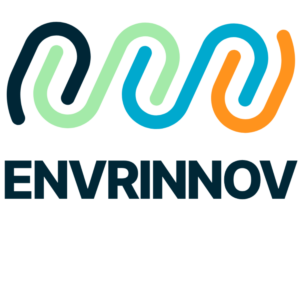
ENVRINNOV received €2.5 million funding from the European Commission’s Horizon Europe Framework Programme, to prepare common strategies for the future development of Research Infrastructure (RI) technologies and services within the Environment community.
Starting in January, 2024 and with a duration of three (3) years, ENVRINNOV will co-design, test, and validate a common Innovation Roadmap for the ENVRI community. This Roadmap will set a credible pathway for the ENVRI community to establish and operate an ENVRI Innovation Hub (EIH), for the future development of new state-of-the-art technologies and services. The project will also develop the tools, policies, and community necessary for the Roadmap’s successful implementation.
To achieve this, ENVRINNOV will: i) Conduct a comprehensive analysis of ENVRI services and technological needs & gaps, and define how to monitor them regularly. ii) Define, digitalize, and promote the uptake of common ENVRI innovation strategies for new technologies/services development to meet emerging needs/gaps. This will be done by defining and testing innovation co-creation mechanisms between ENVRIs, industry and the scientific community and shaping them into common policies. The project will also develop an ENVRI innovation capacity-building programme, a digital platform to enable them, and an uptake strategy to promote them. iii) Engage the European Strategy Forum on Research Infrastructures (ESFRI) and R&I environment ecosystems to ensure long-term synergies and complementarities with ENVRI and gather feedback and support for the Roadmap.
Finally, the project will plan for the timely and realistic implementation of the Roadmap, by also creating and validating with the ENVRI community an implementation plan, governance model and business model for the EIH.
ENVRINNOV’s approach supports ESFRI’s strategic objective to “accelerate the exploitation of EU RIs as knowledge & innovation hubs”. It will help strengthen the European response to the climate crisis and its associated scientific, societal and economic challenges, by increasing the capacity of ENVRIs to respond to them. It will contribute to a more effective EU RI landscape, and support better integration across thematic areas and with the EU Technology Infrastructure landscape.
ENVRINNOV’s impact will manifest on multiple levels , unlocking opportunities for novel environmental monitoring technology solutions and data applications, while indirectly promoting the development of the Technology Infrastructure dimension in various RIs.
To achieve its objectives, the ENVRINNOV consortium brings together ten (10) partners from five (5) European countries- Cyprus, Germany, Finland, Italy and France. In addition to the Cyprus Institute, which is the coordinator of the project, the rest of the partners consist of: Forschungzentrum Julich GMBH -FZH (Germany), the Integrated Carbon Observation System- European Research Infrastructure Consortium- ICOS ERIC (Finland), the Aerosol, Clouds and Trace Gases Research Infrastructure- European Research Infrastructure Consortium – ACTRIS ERIC (Finland), the European Multi-Disciplinary Seafloor and Water Column Observatory-European Research Infrastructure Consortium – EMSO ERIC (Italy), Helsingin Yliopisto- UHEL (Finland), Centre National de la Recherche Scientifique -CNRS (France), Commissariat à L’énergie Atomique et aux Énergies Alternatives – CEA (France), Karlsruher Institut Fuer Technologie – KIT (Germany) and Helmholtz-Zentrum Fur Umweltforschung GMBH – UFZ (Germany).
This project has received funding from the European Union’s Horizon 2023 research and innovation programme under grant agreement no 101131426.
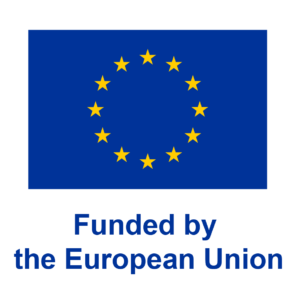
“Funded by the European Union. Views and opinions expressed are however those of the author(s) and do not necessarily reflect those of the European Union or REA. Neither the European Union, nor the granting authority can be held responsible for them.”
Coordinator
The Cyprus Institute
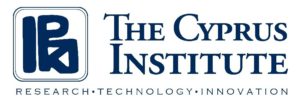
The Cyprus Institute (CyI) is a world-
class, non-profit research and educational institution with a strong scientific and technological orientation. It is a regional Center of Excellence, addressing issues of regional interest but of global significance, with an emphasis on cross-disciplinary research and international collaborations. CyI is being developed as an international science and technology organization to strengthen the research community of Cyprus and to help transform its economy to a knowledge-based economy.
Recognizing the unique geopolitical location of Cyprus, the Institute aspires to serve as a European Union (EU) gateway to research and technology in the Eastern Mediterranean and Middle East (EMME) region and in this way, advance peace and prosperity and promote the cooperation among the people of the EMME region for the betterment of their future.
The Institute operates under the aegis of the Cyprus Research and Educational Foundation (CREF), which is governed by an acclaimed Board of Trustees, comprised of leading personalities of the international academic, political and business world.
CARE-C was founded at the Cyprus Institute in January 2020 through competitive funding secured from the European Commission and the Cyprus Government, in the framework of the European Commission Horizon-2020-TEAMING project “EMME-CARE” (Eastern Mediterranean and Middle East Climate and Atmosphere Research Centre; Grant no. 856612).
Capitalizing on a pre-existing-for-ten-years Research-Division, The Cyprus Institute established the “Center of Excellence” in Climate and Atmosphere research for the EMME region in cooperation with EU Advanced Partners: The Max Planck Institute for Chemistry in Mainz in Germany, the Alternative Energies and Atomic Energy Commission (CEA) in France, and the University of Helsinki (UHEL) in Finland.
CARE-C works in close collaboration with its advanced partners as well as many national institutions and organizations in Cyprus and the region. The Center’s work focuses on environmental and climate change research and the creation of sustainable solutions to address relevant societal challenges in the Eastern Mediterranean and Middle East (EMME) region, which has been identified as a climate change “hotspot”. Research undertaken under CARE-C’s areas of focus is impact and sustainability driven, and has also been embedded at policy-making level through strong collaborations with the Departments and Units of the Ministry of Agriculture, Rural Development and Environment, the Ministry of Labour, Welfare and Social Insurance, the Ministry of Defence, the Ministry of Health, as well as the Research & Innovation Foundation, which is the national funding agency in Cyprus for R&I and the host of National Contact Points.
CARE-C is mainly focused on three key areas of activity:
- Science and Research on Climate Change and Air Pollution over the Eastern Mediterranean and the Middle East (EMME) region.
- Innovation on early warning systems for dust storm and extreme weather events, new cost-effective atmospheric sensors, Unmanned Aerial Vehicles in meteorology and air quality, regional carbon footprint and air quality forecasting.
- Education and Training on Meteorology and atmospheric sciences (MSc and PhD), climate change and weather forecasting (trainings), hands-on practice on atmospheric instrumentation and knowledge exploitation and transfer.
The Centre operates four Research Departments:
- Environmental Observations conducting continuous long-term measurements of atmospheric composition, related environmental parameters and trends, and analysis of atmospheric loads and interactions of gaseous and aerosol pollutants in urban and remote regions of the EMME to further our understanding of the changing regional environment.
- Environmental Predictions, dedicated to the study of the role of anthropogenic emissions in biogeochemical cycles, air quality and climate change with a focus on the EMME region
- Impact and Policy, dedicated to pursuing multi- and cross-disciplinary research on societal challenges needing regional and local solutions.
- Environmental Technologies, identifying attractive commercial research applications that contribute to sustainable economic growth for Cyprus and the region and ensure the Center’s financial longevity.
Website: https://www.cyi.ac.cy
https://emme-care.cyi.ac.cy
Partners
Institute for Atmospheric and Earth System Research- INAR, University of Helsinki- UHEL, Finland
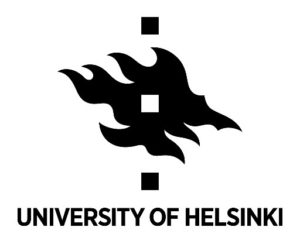
The Institute for Atmospheric and Earth System Research (INAR) is a multi- and interdisciplinary research unit based in physics, chemistry, meteorology, forest sciences, environmental sciences and social sciences in the University of Helsinki. INAR aims to strengthen the internationally leading, integrated multidisciplinary research and education environment for atmospheric and Earth system science and to feed in scientific results for the national and international environment and climate policy. It performs multiscale research from molecular to global scale and focuses on climate change, air quality, biogeochemical cycles and ecosystem processes. INAR has national partners in Finnish Meteorological Institute, University of Eastern Finland and Tampere University of Technology. The leader of INAR is academician, professor Markku Kulmala.
The University of Helsinki is representing the Aerosol, Clouds, and Trace Gases Research Infrastructure-ACTRIS and the Integrated European Long-Term Ecosystem, critical zone and socio-ecological system-eLTER research infrastructures. It has an extensive expertise in operating and developing long-term comprehensive atmospheric and ecosystem measurement sites and developing related instruments and techniques. UHEL is among the pioneers in developing integration of the in situ environmental infrastructures from the planning to implementation and operations, and hosts several field stations where ICOS, ACTRIS and eLTER are co-located.
Website: www.helsinki.fi/en/inar
Centre National de la Recherche Scientifique- CNRS – France

The National Centre for Scientific Research (CNRS) is a major player in basic research on the global stage and the only organisation in France that is active in all fields of science. Its unique position as a specialist in multiple fields means that it can bring together different scientific disciplines to shed light on and gain insight into current global challenges, in partnership with public sector, social and economic stakeholders. Together the sciences are used to bring about sustainable progress that benefits the whole of society.
CNRS is represented in this project by the Laboratoire de Physique – LaMP, a research unit, which has more than 15-year experience in implementing access and service provision related to long-term sustainability of access, RI access, user strategy, data policies and communications in the field of Atmo-RIs. It has organised the first EU Environmental Research Infrastructures–Industry Joint Innovation Partnering Forum (May 2017, Grenoble, France) involving private sector users from various ENVRI domains in the framework of the ENVRIplus project.
Website: https://www.cnrs.fr/fr
The European Multidisciplinary Seafloor and water column Observatory- European Research Infrastructure Consortium – EMSO-ERIC – Italy
 The European Multidisciplinary Seafloor and water column Observatory (EMSO) aims to explore the oceans, to gain a better understanding of phenomena happening within and below them, and to explain the critical role that these phenomena play in the broader Earth systems.
The European Multidisciplinary Seafloor and water column Observatory (EMSO) aims to explore the oceans, to gain a better understanding of phenomena happening within and below them, and to explain the critical role that these phenomena play in the broader Earth systems.
EMSO consists of a system of regional facilities placed at key sites around Europe, from North East to the Atlantic, through the Mediterranean, to the Black Sea. Observatories are platforms equipped with multiple sensors, placed along the water column and on the seafloor. They constantly measure different biogeochemical and physical parameters, that address natural hazards, climate change and marine ecosystems. It’s a consortium of partners sharing in a common strategic framework scientific facilities (data, instruments, computing and storage capacity). Formally it is a European Research Infrastructure Consortium (ERIC), legal framework created for pan-European large-scale research infrastructures.
EMSO-ERIC actively provides services for research and industry in the Marine and Environment domains with a multidisciplinary approach providing Physical Access to its Regional Facilities. It is heavily engaged in EOSC activities participating in EOSC-Future and ENVRI-fair and being a member of the EGI Foundation. It has participated in the project ENVRI-Plus developing the “RI innovation and industry liaison Preparedness Roadmap” and in the ENRIITC project the “Strategy to exploit the innovation potential of RIs”.
Website: https://emso.eu/
Integrated Carbon Observation System – European Research Infrastructure Consortium – ICOS-ERIC, Finland
 The Integrated Carbon Observation System- ICOS provides standardised and open data from more than 170 measurement stations across 16 European countries. The stations observe greenhouse gas concentrations in the atmosphere as well as carbon fluxes between the atmosphere, the land surface and the oceans. Thus, ICOS is rooted in three domains: Atmosphere, Ecosystem and Ocean.
The Integrated Carbon Observation System- ICOS provides standardised and open data from more than 170 measurement stations across 16 European countries. The stations observe greenhouse gas concentrations in the atmosphere as well as carbon fluxes between the atmosphere, the land surface and the oceans. Thus, ICOS is rooted in three domains: Atmosphere, Ecosystem and Ocean.
The ICOS community consists of more than 500 scientists in both its current Member and Observer countries and beyond. More than 80 renowned universities or institutes are a part of the ICOS community. The ICOS community has strong connections to colleagues and operators outside ICOS. ICOS-based knowledge supports policy- and decision-making to combat climate change and its impacts.
ICOS has been coordinating so far five H2020 and HE projects (see Table 2 and Part A): The ICOS Director General is currently chairing the Board of European Environmental Research infrastructures (BEERi) and ICOS is also representing the environmental cluster of RIs (ENVRI) on the Executive Board of the ERIC Forum. ICOS is the leading RI within the ENVRI community regarding the implementation of FAIRness.
Website: https://www.icos-cp.eu/about/organisation-governance/icos-eric
Forschungszentrum Jülich – FZJ, Germany

Forschungszentrum Jülich- FZJ aims to attract outstanding scientists, talented young professionals, and highly qualified employees for the areas supporting research, namely administration and infrastructure. With more than 7,000 employees, Jülich is one of the largest interdisciplinary research centres in Europe and a member of the Helmholtz Association. As an open, responsible campus with vision, Jülich is an excellent place for inspiring exchanges with people from all over the world.
FZJ is member of the ESFRI Landmark IAGOS, a RI nominated by the Group of Senior Officials (GSO) on global Research Infrastructures. FZJ is coordinating the H2020 ENVRI-FAIR and has proven experience in operational web-based GUI applications for workflow and data handling. It maintains the ENVRI-Hub as gateway to the ENVRIs digital assets in a FAIR way. FZJ also hosts the ENVRI community homepage.
Website: https://www.fz-juelich.de/en
Helmholtz Centre For Environmental Research – UFZ, Germany
 The UFZ is one of the world’s leading research centres in the field of environmental research, enjoying high social recognition. It demonstrates ways in which a sustainable use of our natural resource base is possible for the benefit of both humankind and the environment.
The UFZ is one of the world’s leading research centres in the field of environmental research, enjoying high social recognition. It demonstrates ways in which a sustainable use of our natural resource base is possible for the benefit of both humankind and the environment.
The UFZ conducts excellent research and takes on a shaping role in the scientific community. As a reliable partner, the UFZ supports the political arena, the economy and the general public to better understand the consequences of human actions on the environment and to develop options for social decision – making processes. For this purpose, the UFZ responds to the stimuli created by society and by producing know – how and technologies that should help to rapidly identify problems comprising conflicting priorities between the environment and society. The UFZ will consequently work on precautionary measures.
In dealing with complex environmental issues, the disciplinary borders between the natural- , engineering- and social sciences need to be overcome. The UFZ has extensive competences in integrated environmental research. It boasts innovative scientifi c infrastructures and nurtures indispensable national and international cooperation, enabling problem – solving at the highest level.
UFZ is coordinating and managing the preparatory phase of the eLTER RI. It is one of the world’s leading research centres in the field of environmental research.
Website: https://www.ufz.de/
The French Alternative Energies and Atomic Energy Commission – CEA, France
 The CEA is a major research organisation working in the best interests of the French State, its economy and citizens. Thanks to its strong roots in fundamental research, it is able to provide tangible solutions to meet their needs in four key fields:
The CEA is a major research organisation working in the best interests of the French State, its economy and citizens. Thanks to its strong roots in fundamental research, it is able to provide tangible solutions to meet their needs in four key fields:
- Low-carbon energy (nuclear and renewable)
- Digital technology
- Technology for medicine of the future
- Defence and national security
CEA is represented by LSCE, hosting the ICOS-ATC (Atmosphere Thematic Centre) in charge of the coordination of the European atmospheric measuring network, of the station labelling and technological innovation (development techno watch, instrument testing, benchmarking etc). LSCE is also a leading research institute in atmospheric composition monitoring and biogeochemical cycles and climate modelling including strong capabilities in data assimilation and inverse modelling. LSCE is one of the main contributors to the IPCC 5th Reports in France.
Website: https://www.cea.fr/english/Pages/Welcome.aspx
The Karlsruhe Institute of Technology- KIT, Germany
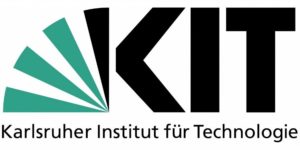 KIT is “The Research University in the Helmholtz Association.” As one of the biggest science institutions in Europe, the only German University of Excellence with national large-scale research facilities combines a long university tradition with program-oriented top-level research.
KIT is “The Research University in the Helmholtz Association.” As one of the biggest science institutions in Europe, the only German University of Excellence with national large-scale research facilities combines a long university tradition with program-oriented top-level research.
At KIT, more than 5,500 scientists cooperate in a broad range of disciplines in natural and engineering sciences, economics, the humanities, and social sciences. Irrespective of whether they predominantly perform research or university tasks, they all participate in academic education to provide our students with insights that can only be offered by KIT as the Research University in the Helmholtz Association.
KIT is deeply involved in ACTRIS (e.g. AIDA climate chamber, Lidar and KLOCX radar system) and ICOS (Integrated Greenhouse Gas Monitoring System, ITMS) and coordinates and operates the IAGOS-CARIBIC laboratory on board a passenger Airbus by Lufthansa. The latest 19 CARIBIC (state-of-the-art) instruments have been developed, fully automated and aircraft certified by 13 research groups in Europe and the US, in close cooperation with ~15 companies.
Website: https://www.kit.edu/english/
The Aerosol, Clouds, and Trace Gases Research Infrastructure, European Research Infrastructure Consortium – ACTRIS ERIC
The Aerosol, Clouds and Trace Gases Research Infrastructure (ACTRIS) is the pan-European research infrastructure (RI) producing high-quality data and information on short-lived atmospheric constituents and on the processes leading to the variability of these constituents in natural and controlled atmospheres.
ACTRIS enables free-access to high-class long-term atmospheric data through a single entry point. We offer access to our world-class facilities providing researches, from academia as well as from the private sector, with the best research environments and expertise promoting cutting-edge science and international collaborations.
Website: https://www.actris.eu/
Deliverables
- D1.1 – ENVRI catalogue of services construction & ongoing update
Link to deliverable: D1.1 ENVRI catalogue of services construction and ongoing update
- D1.2 – Ongoing analysis of technology/service needs and gaps
Link to deliverable: D1.2 Ongoing analysis of technology/service needs and gaps
- D3.1 – ENVRI Common Policies & Resources on Innovation
Link to deliverable: D3.1 ENVRI Common Policies & Resources on Innovation
- D3.2 – The ENVRI innovation training program
Link to deliverable: D3.2 The ENVRI innovation training program
- D4.1 – ENVRI Digital Platforms Long-Term Operation Strategy
Link to deliverable: D4.1 ENVRI Digital Platforms Long-Term Operation Strategy
- D7.1 – Refined Plan for Dissemination, Exploitation and Communication (DEC)
Link to deliverable: D7.1. DEC
- D7.2 – Refined Data Management Plan (DMP)
Link to deliverable: D7.2.DMP
- D8.3 – Ethics Compliance Report
Link to deliverable: D8.3 Ethics Compliance Report
- D8.4 – Policy Briefing
Link to deliverable: D8.4 Policy Briefing
Milestones
- MS 1.1. – Compilation of ENVRI services (Due date: 31/01/2025)
Link to milestone: ENVRINNOV MS1.1
- MS 1.2 – ENVRI Scientific white paper
Link to milestone: ENVRINNOV MS1.2
- MS2.1- Pilot Cases Initiated (Due date: 31/03/2024)
Link to milestone: ENVRINNOV MS2.1
- MS2.2 – Innovation strategy pilot cases successfully achieved (Due date: 31/03/2025)
Link to milestone: ENVRINNOV MS2.2
- MS3.1 – Innovation Resources Toolbox (First Version) (Due date: 30/09/2024)
Link to milestone: ENVRINNOV MS3.1
- MS3.3 – Capacity Building needs & gaps and available resources (Due date: 31/12/2024)
Link to milestone: ENVRINNOV MS3.3
- MS 3.4 – First innovation training pilot complete (Due date: 30/06/2025)
Link to milestone: ENVRINNOV MS3.4
- MS 5.1 – First Annual Stakeholder event (Due date: 31/10/2025)
Link to milestone: ENVRINNOV MS5.1
- MS6.1 – ENVRI Innovation Roadmap first version (Due date: 30/06/2025)
Link to milestone: ENVRINNOV MS6.1
Latest news
ENVRINNOV- Videos of Innovation Strategy Pilot Cases published
ENVRINNOV: Innovation strategy pilot cases successfully achieved
ENVRINNOV: Compiling a catalogue of ENVRI innovation services
The annual ENVRINNOV consortium meeting, coordinated by CARE-C, took place in Rome
ENVRINNOV: Understanding capacity building needs & gaps on Innovation in the ENVRI community
ENVRI Community Invited to Contribute to ENVRINNOV Training Development
ENVRINNOV project kick off: paving the way for the development of new technologies & services to address the climate crisis
You can find all the latest updates of ENVRINNOV on the ENVRI Community social media platforms:



Project coordinators
Prof Jean Sciare- email: j.sciare@cyi.ac.cy
Marina Papageorgiou- email: m.papageorgiou@cyi.ac.cy
#ENVRINNOV

